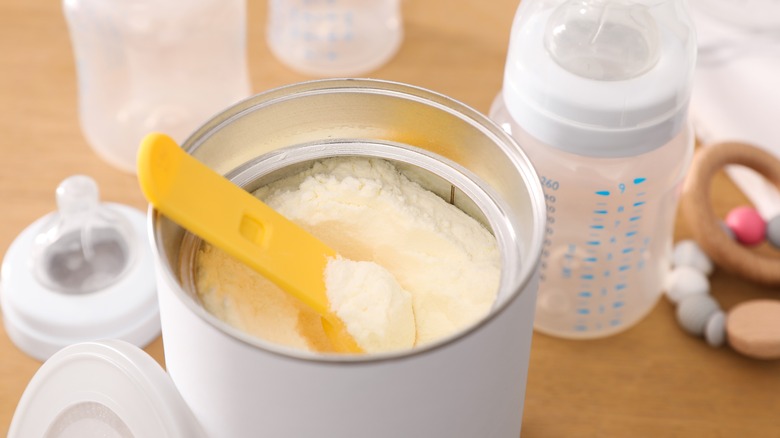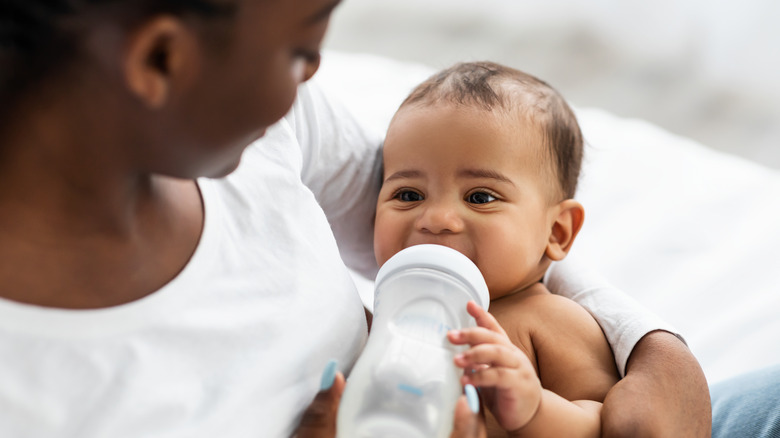The FDA Offers New Tips On How To Handle Bacteria Found In Baby Formula
It's been a tough year for parents in the United States. The majority of them try their hardest to provide the best life for their children, taking parenting tips from across the world to ensure they're bringing their kids up in the perfect environment. However, it's difficult when there are so many issues in the US that prevent parents from even feeding their babies.
Earlier this year, there was a baby formula shortage that impacted parents across the country (via The New York Times). The shortage was linked to pandemic supply chain issues, and left parents terrified that they would not be able to feed their children. Stores across the country were issuing a limit to how many containers of formula families could purchase — if their brand of choice was available at all. Some shelves were completely empty.
By August, the shortage was ending, CNN reports. But, just when it seemed like the stress of formula issues was ending, parents now have to worry about bacteria in the products they are feeding to their children. The FDA has issued new tips on how to navigate the new problem.
The FDA offers ideas on how to keep babies safe during this uncertain time
The FDA recently shared that they are investigating and monitoring the ingredients of baby formula after four babies came down with Cronobacter sakazakii infections (via KDRV). The infections may have led to the deaths of two infants this year. This infection is caused by the Cronobacter bacteria, which can contaminate baby formula by touching an infected surface or using contaminated ingredients in the formula mix. While infection from this bacteria is rare and harmless to adults, it can cause serious illness or even death in children under two months old, those born with immunodeficiencies, or premature babies (via U.S. News).
The FDA has issued some new tips to help parents protect their babies from infection. Since the bacteria only impacts powdered formula, the administration is recommending parents serve their children ready-to-feed formula for now. If you can't feed pre-made formula, the FDA recommends making your baby's formula with water that is 158 degrees or higher. The hot water can help kill bacteria; just be sure to allow the water to cool before serving it to your child. It's important to read the labels of the formula before trying this method, as some formulas lose nutrients when water is heated above 100 degrees. Finally, the FDA advises that parents keep their bottles sterilized and avoid placing formula container lids on counters, as surfaces can easily be contaminated with the bacteria and spread to formula through contact.

